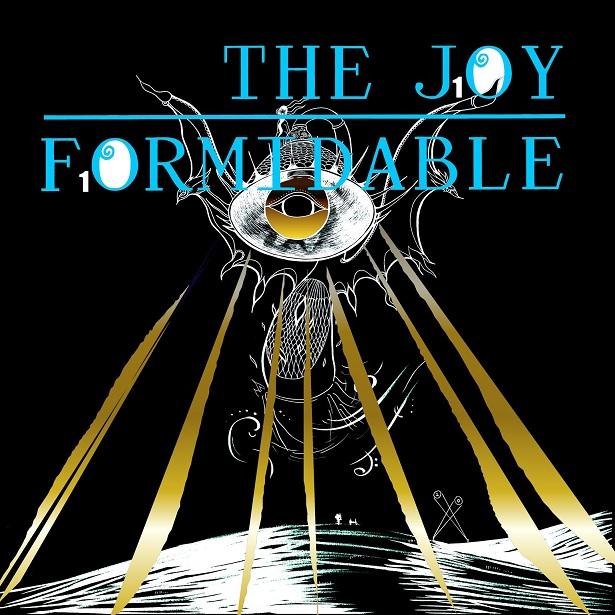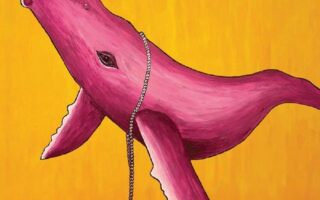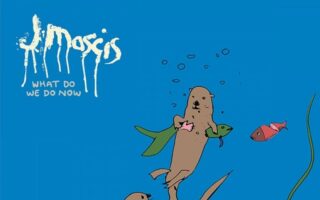It may well be entirely cliched to say it, but a lot can happen in ten years.
Back in 2009, music media buzz and the UK gig circuit were awash with indie and alternative rock acts looking to follow in the hallowed footsteps of the scene’s luminaries – The Libertines, The Strokes, Kings Of Leon and a rapidly ascending Alex Turner and co.
There was a clearly visible path towards the upper reaches of the proverbial rock and roll tree, where putting in the miles on the road and garnering a loyal fanbase on the way could be the platform for big things to come.
Lead singer and guitarist Ritzy Bryan and bassist Rhydian Dafydd of The Joy Formidable were the creative duo as it all began, with drummer Matt joining amid the early recording sessions after previous drummer Justin Stahley had left, on what was to soon become their breakout EP.
Despite Ritzy and Rhydian hailing from the endearingly unchanging north Wales market town of Mold, A Balloon Called Moaning was somewhat bemusingly released exclusively in Japan in December 2008, before a full UK release with additional tracks the following month.
The first side of this double-sided 10th anniversary release represents a gloriously nostalgic journey through The Joy Formidable folklore, with several tracks from the EP subsequently making it onto the sprawling dream-pop enthused debut LP, The Big Roar.
Lead track The Greatest Light Is The Greatest Shade bursts into life with an echoing synth keyed refrain which fights for breathing space alongside Bryan’s frenetic power chord strumming. Still sounding as ethereal as ever, the introspective lyrics float over a chuntering bassline, with the repetition of the phrase ‘a calm day will come’ preceding a now infamous chorus template for the band as the frenetic instrumental builds around soaring cries of ‘this dream is, this dream is, in a telescope now’, seemingly reflecting on a lost love now far from reach.
From, this reflective post-shoegaze sound we are reminded of the band’s ability to crank the volume up when the mood takes flight. Cradle wastes no time in launching into a decidedly punk rock sensibility with crashing percussion and guitars which soon make way for stuttering notes which feature throughout much of the track.
Even with a decade having past, it’s easy to remember Austere as one of the band’s most lauded early singles. The repeatedly pulsing bass run really hoists up the joyous melody found here, with the song using the power of a well-crafted, slow tempo to rousing outro instrumental orchestration to scintillating effect, one which ultimately belies the usually harsh dictionary definition of the track’s title.
Shortly after arrives Whirring, which has since gone on to become one of the band’s most noteworthy tracks. Once acclaimed by Dave Grohl no less as the ‘song of the year’, it doesn’t take long to see why: the now customary, reverberating E-string notes from Bryan underpin an instrumentally upbeat track which masks a solemn tale of not being able to get through to someone as your words fall tantalisingly short of their desired effect.
As if to display their willingness to explore the depths of their songcraft and flexibility in sound, the welcome calmness of the acoustic led 9669 harnesses the stripped back majesty of the band. Bryan’s voice is clearly more delicate here, but no less poignant are the lyrics and overall cut-through of the track’s message of brutal heartbreak even when two people have enjoyed so much of their lives entwined.
It does appear brave, on the surface, for the band to reissue what is essentially an EP as opposed to a full-length album, it clocking in at just under half-an-hour. However, it’s testament to the band’s acknowledgement of their roots and the significance of everything that came after this record that it feels situated as a warm homage to their still loyal fanbase after all this time.
This is further emphasised on the second side of the reissue, which includes new, acoustic recordings of each track from the EP translated to Welsh, being Dafydd’s first language and Bryan’s second.
In recent interviews, Bryan has stated that this was much more than a simple Google Translate task, with each song being completely re-worked into what is ultimately a beautiful and poetic language, yet not without its difficulties when trying to keep the quality consistent with the original songs.
Despite this writer having failed their Welsh GCSE at the high school next door to the bilingual one attended by both Bryan and Dafydd, it’s not hard to believe that Welsh speaking listeners will be beaming ear-to-ear with pride at one of their brightest musical exports flying the metaphorical flag with gusto.
Much may have changed since the original release of the EP, with various personal and existential tests for the band up until this point meaning that the fact that they are still making music is something to rejoice in.
While the mainstream continues to focus in on other genres than that which they have inhabited for so long, rumours of another Joy Formidable album in the works and solo records for both Bryan and Dafydd suggest that, upon this anniversary, they are far from done yet.








